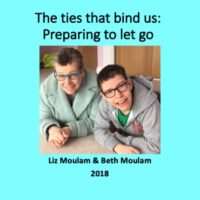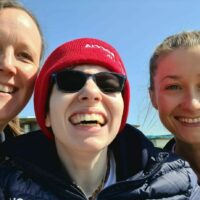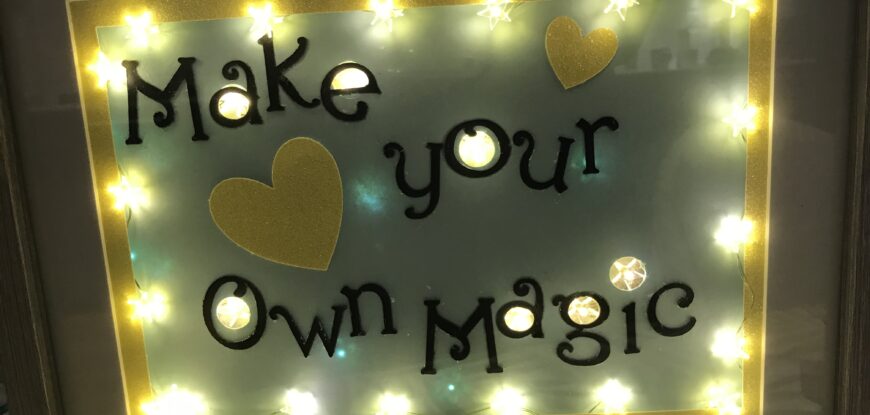Often we consider transition to be something that happens at school, but in reality changes never stop throughout our lives. There are many different transitions in life. Everyone grows older, we may find partners or live with family or friends. We buy houses, or move home. Sadly families get older and people pass. All this happens whoever we are.
Getting a social worker
Transferring out of education and children’s services into adult services is a daunting time for all young people with disabilities, and for their families. I got a social worker at the age of 12, but for many people moving to adult services may be the first time you’ve had contact with social services. Even if you’ve had a social worker growing up they will still change once you are 18 (going into higher education) or 25 when your education, health and care plan (EHCP) ceases.
Life-time support needs
Most people don’t suddenly know when they move into adult services what their lifetime support needs might look like. It can come as quite a shock to start to think about the long term rather than the next stage of education. I’d started dreaming about my future at the age of 14. I knew how I wanted to live, what type of work I would like to do, and much more. This meant I had several years of planning and research under my belt when it came to thinking about future transitions in life. For others it might be more of an evolving situation, you may have already started the process of living independently but feel you want to know more or need some further input.
Preparing for independence
Preparation for this important move might have been lacking because you have been one of few disabled students in your educational provision. Or maybe it wasn’t seen as a priority because of academic studies. Even going as I did to a special school the work done there on independence was not enough. For instance, planning a menu and filling a washing machine, or asking for help can be a far cry from what I actually needed. From a social services perspective young people with disabilities are a minority group within social care. As a consequence, we might get limited specialist support that recognizes our specific needs. I feel like I was thrown in the deep end. Then, if you are self-funded you may need, with your family, to find your own solutions for your transitions in life.
Being in control
Whilst I was really excited to live independently I didn’t fully realize just how much work would be needed. Suddenly I was expected to manage a team of people, plan their workloads, arrange payroll, deal with equipment breakdowns and more. Even having an agency manage some of these aspects of life still required me to be able to interact effectively and with confidence with the service provider.
I’ve chosen these days to go it alone and directly employ my own team. This gives me the control I want over how I run my life. And as Chief Executive of my own life I can choose which tasks to delegate and how I direct them.
Decisions today impact tomorrow
I’ve come to recognize that decisions taken early may affect what happens during the rest of my life. Evidence shows with an active lifestyle those with disabilities may lead fulfilling lives for decades. For this reason I know investing in my future early is important. It is one way I can learn to take control of the transitions in life. For example; building a lifetime home fit for purpose means remaining independent. Then my choice of degree grounds me in the reality of everyday life. I know living independently has made a huge difference for me and how I view my long-term expectations.
Life stages
Throughout life there will be many transitions. My most recent was coming out of university where I had been taught to be reflective. I’ve taken this skill and applied it to my future transitions in life. Again, planning ahead makes me feel in control of my future.
Planning ahead
Some of the questions and prompts I’ve used to consider what the future might hold includes:
- Identifying my aspirations and dreams for the future and how might I make these a reality?
- What is my entitlement to statutory services including benefits, health, education, and social care? I found the NICE guidance for people with cerebral palsy really helpful for this. There is an adult version and one for children and young people under 25
- Why good physical, mental and emotional wellbeing and community connectedness is essential, and I can maintain this?
- How might I harness the support of my family and wider circles of support?
- Who might make a good future advocate?
- What might I need as I mature and my support circle changes?
- What are the skills needed for living independently including:
- Decision-making skills and communication competence
- Building a resource and knowledge base
- Administration and financial skills including outsourcing tasks like payroll
- People management skills from recruitment, training and developing of support teams to dealing with day to day living, setting employer/employee boundaries, and how to deal with poor quality care
- Dealing with conflict and challenging situations including staying safe and when to seek help.
- The importance of access to peers for information and social support, and where possible shared health experiences.
- How my communication needs might (and have) changed. In my case I type in what I want to say to my AAC device, but for other people I know they need new and additional vocabulary as they make transitions in life.
 ‘The ties that bind us, learning to let go’
‘The ties that bind us, learning to let go’
Mum and I did a lot of work a few years ago about planning for the future, it is something we revisit regularly. When we talked to others we found many people were not yet considering their longer-term future. The result was we led a workshop at the ISAAC 2018 Gold Coast conference. The aim was to give delegates the opportunity to consider their own circumstances. Then to think about their future when parents and key loved ones may no longer be around to provide support. It is a challenging concept but as I’ve got older and lost both friends and relatives I realize it is essential I’m prepared for what might come. These transitions in life are not just for me but as important for Mum and Dad. They are having to learn to step back to let me practice for the future.

Training for your support team
Besides ensuring you are given the support you need to lead a fulfilling life, like me you might also want to consider what training and support will be needed ongoing for those around you to empower you and provide ongoing support. I’ve previously blogged about setting up my own team, the recruitment process and the need for good training. Nothing I’m aware of currently exists so over the last few years I have created my own training. This includes upskilling team members in understanding my disability and communication through to strategies for daily life.
I’m planning to be around for many years. There will always be unknowns and hiccoughs but trying to pre-empt the things that are known makes me feel secure in what will happen.


If you found this interesting or
helpful please feel free to share.